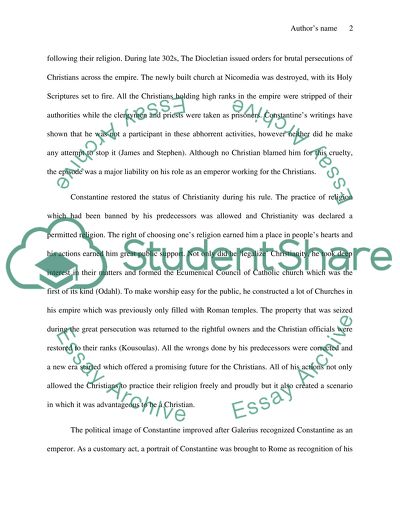Cite this document
(“Constantine I The Great Emperor Essay Example | Topics and Well Written Essays - 1750 words”, n.d.)
Retrieved from https://studentshare.org/history/1430607-constantine-i-the-great-emperor
Retrieved from https://studentshare.org/history/1430607-constantine-i-the-great-emperor
(Constantine I The Great Emperor Essay Example | Topics and Well Written Essays - 1750 Words)
https://studentshare.org/history/1430607-constantine-i-the-great-emperor.
https://studentshare.org/history/1430607-constantine-i-the-great-emperor.
“Constantine I The Great Emperor Essay Example | Topics and Well Written Essays - 1750 Words”, n.d. https://studentshare.org/history/1430607-constantine-i-the-great-emperor.


